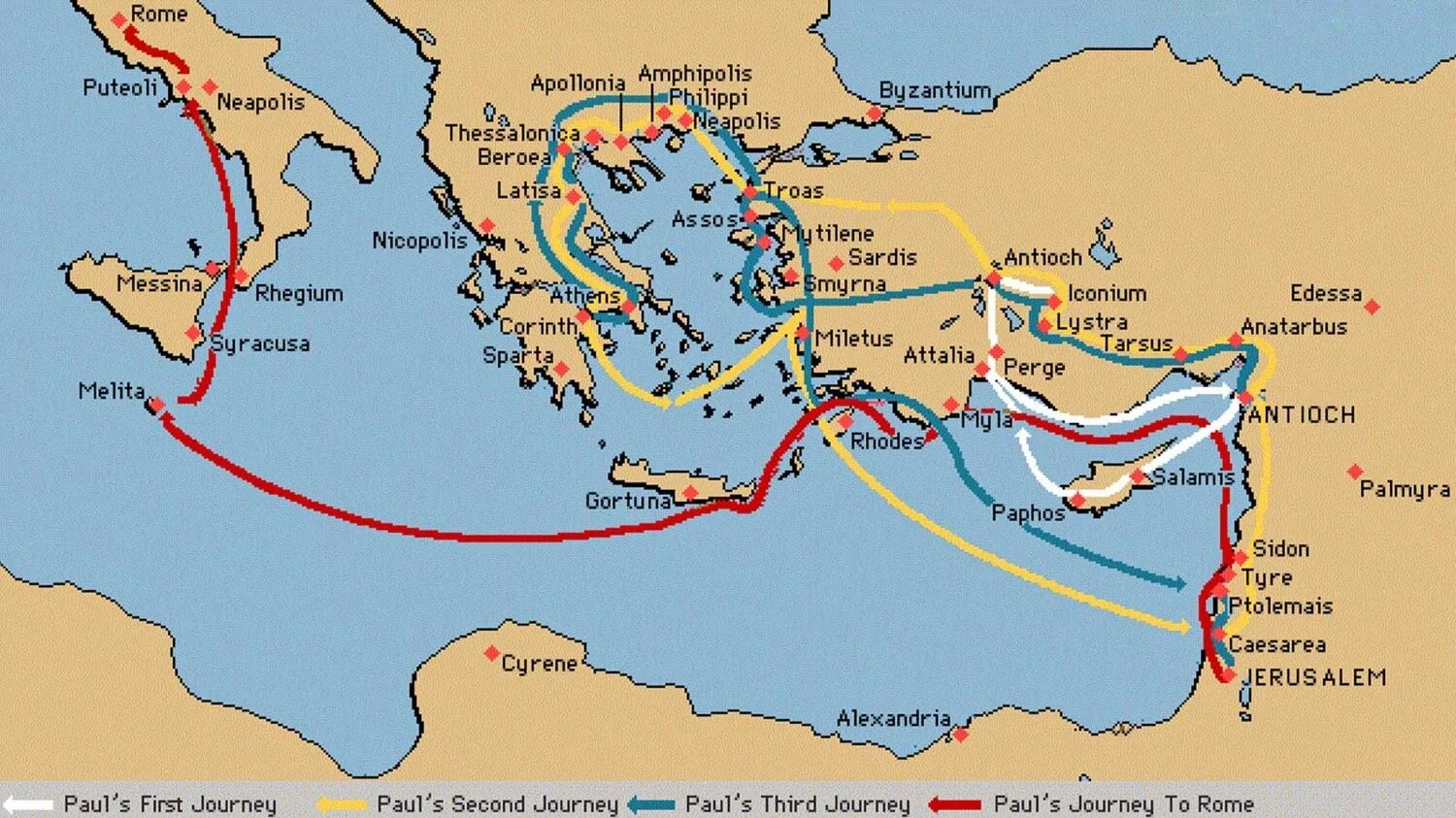Readings for today: Acts 27-28
A few years ago, a young missionary named John Chau was killed as he tried to reach an unreached people group with the gospel. His death kicked over a hornet’s nest of controversy. Some saw him as yet another martyr to the cause of Christ on par with the Jim Elliott’s of the past. Others saw him as yet another example of colonial Christianity seeking to impose his views on a tribe who clearly didn’t want him on their island. The inhabitants of North Sentinel killed John Chau as he attempted to befriend them, bring them gifts, and, most of all, share Christ. Why the controversy? First and foremost, we live in a culture where evangelism is cast in a negative light. The idea that one person’s views are superior in any way to another’s is anathema. The Sentinelese had a right to be left alone. Their religious views are no one else’s business. Christian missionaries should stay out. Second, we live in a culture where “Christian missions” have too often been used as a cover for Western European colonial expansion. The evidence is legion in Africa, Latin America, and other places around the globe. Western powers using the gospel as a pretext to overthrow governments, manipulate economies, and enslave entire people groups. Third, too many missionaries are naive in their approach. They don’t take seriously the potential of introducing life-threatening disease to the local population. They don’t take the time to understand the language or learn the culture or use intermediaries who are culturally closer to the unreached group to help make first contact.
By all accounts, John Chau truly made an effort to overcome these barriers and address these concerns. He spent a great deal of time in training. He trained his body. Trained his mind. Trained his spirit to endure the isolation he would experience should he make successful contact. He got the proper immunizations and quarantined himself to protect the Sentinelese from any potential disease. He studied their culture. Studied what was known of their language. He made multiple trips to the region to familiarize himself with the area. He made enough local contacts to provide transport. He clearly was not an agent of some foreign government seeking to extend their influence. Once the dust settled, the picture that emerged was that of an earnest, sincere believer in Christ who clearly felt called to reach one of the most isolated tribes left in the world with the gospel. Time will tell if his death will bear any fruit.
What does this have to do with today’s Bible reading? I imagine Paul faced similar challenges in his own journey to Rome. I think about his encounter with the indigenous people on Malta. Having been shipwrecked in a storm, Paul escapes with his life along with the other sailors and soldiers who were aboard. They make their way to the beach where they were greeted with kindness by the locals. A fire was kindled. Food was probably brought. Paul even gets bit by a poisonous snake and survives! Eventually, they are taken to the leader whose father was dying of disease. Paul heals him. Word gets out. The people bring all their sick to Paul to be cured and this gave Paul an opportunity - though the passage doesn’t make this explicit - to preach the gospel.
I imagine the same people who criticize John Chau would have criticized Paul as well. The only difference is enough time has past to see the fruits of Paul’s labor. His efforts clearly succeeded. The seeds of the gospel he planted bore fruit. An empire was converted. The world was changed. But now Paul’s come to the end. The race has been run. The cup emptied. He will be executed in Rome. The latest in a long line of first century martyrs who gave their lives for the cause of Christ.
What can we learn from the example of Paul? Or the modern day example of John Chau? First, we must have a passion to reach the lost at all costs. There is an urgency to our mission because eternity is literally on the line. Christ Himself commanded us to make disciples of all nations. He told us we would be His witnesses in Jerusalem, Judea, Samaria, to the ends of the earth. This commission has never been revoked so we must be obey. Second, we must be willing to sacrifice comfort, safety, reputation, and resources if we are to accomplish this mission. Evangelism will not make us popular. Many will reject what we have to say. They will criticize us and call us names. They may accuse us of promoting white supremacy, neo-colonialism, etc. But we must fear God more than man. Finally, we have to be wise. We cannot confuse the mission with the methods. We cannot be so wed to a certain way of doing things that we make it more important than the mission itself. We must be culturally sensitive and aware. We must be willing to relinquish power and authority to indigenous leadership. We must be humble in our approach and not pretend we have all the answers. We must study the culture we are trying to reach diligently and honor as much as we can. We must openly acknowledge when we make mistakes and ask for forgiveness.
The 29th chapter of Acts is being written even as we speak…what stories will be told about your mission work?
Readings for tomorrow: Philippians 1-4
